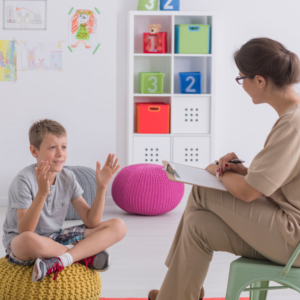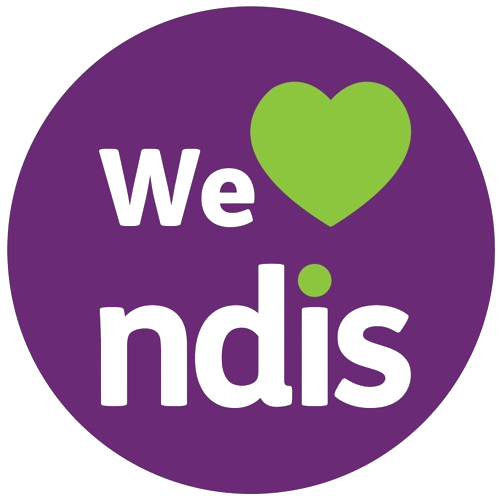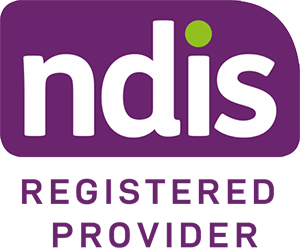Growing up can be tricky, there are lots of physical, social, emotional and behavioural changes going on, in addition to the rapidly changing world around us. Research shows that half of all the mental health conditions we experience at some point in our lives will have started by age 141 and almost 1 in 3 Australian young people report high or very high levels of psychological distress2.
Family and friends have an important role in identifying when a young person may be struggling and supporting them to get the right help, with this, things can get better!

What to look out for
Here are some common signs that your child or young person may be in need of some additional support:
- withdrawing from friends and family
- not enjoying things that they usually do
- changes in appetite or sleeping patterns
- declining performance or attendance in school, TAFE, uni or work
- increases in risky behaviour, like using alcohol or other drugs
- experiencing mood changes, or being easily upset
- expressing negative or distressing thoughts.
Keep in mind that occasional moodiness or irritability is typically expected during development, and the above list is referring to noticeable or persistent behaviours that have been present for at least a few weeks.
If you think your child or someone you care about is having a hard time, what can you do?
Starting tough conversations with young people can at times feel challenging or awkward, particularly when it comes to topics like mental health. There is no perfect way to have this conversation, what’s important is that we have them.
- Before the conversation
It’s important that before starting this conversation you take some time to check in with yourself and notice how you are feeling. If you are feeling frustrated, worried or upset it is worthwhile to reflect on what is causing this for you and gather yourself prior to starting the conversation.
While it is totally normal to be feeling concerned about your child or friend, and its ok to share some of what you are feeling it is important that this is done carefully as to ensure that they don’t feel responsible for managing your emotions or that what they are going through is burdening anyone.
- Before you approach the conversation ensure you are feeling calm and are open to listening.
- Consider where and how you will have this conversation. It might be easier if you start by spending some time together doing something that your child enjoys doing. Sometimes these conversations can be easier when you aren’t eye to eye or facing each other. Perhaps go for a drive or a walk together or do it during an activity.
- Be prepared to remain calm, validate and allow the child to express what they are going through without trying to ‘fix’ the problem.
- Starting the conversation
As mentioned, there is no perfect way to have this conversation, and if the opportunity to have the conversation arises, its best to seize the opportunity rather than let it pass waiting for the perfect setting or circumstances. Here are some tips that may assist in getting the conversation started:
- Start with a general question such as asking how school has been going e.g. “how are you feeling about exams” or “how are you feeling about finishing year 7?”
- Focus on using ‘I’ statements to ensure that the conversation remains open and reflective
- instead of “you’ve been really withdrawn and different lately” try “I’ve noticed that you haven’t been yourself lately”
- Avoid judgement and problem solving
- Let them know that it’s ok for them not to know what to do next
- “Just letting you know that I am here for you, and I care”
- “We can work this out together”
- “It’s ok if you don’t want to tell me about it, you could talk to (trusted adult), I just want you to know that I am here no matter what”
- Take their feelings and experiences seriously. In order to validate someone’s experience we need to accept that their perspective is valid even if it is different to your understanding or experience.
This conversation will be different depending on the age/stage of your child’s development. It is also important that you adapt your language to suit you and the way you communicate so that it sounds natural and comfortable for you.
If your child does share with you some things that they are finding hard, it’s important to know that you don’t need all of the answers, just letting them know that together you can figure it out is important. Even saying “I don’t even know what to say right now, I’m just so glad you told me” is ok, and can be incredibly validating.
If your child or someone you care for is in crisis, call triple zero (000). You can also go to your local hospital emergency department. Remember to stay with the person until they are able to access professional support. If you are feeling overwhelmed and need to speak to someone now, contact:
- Lifeline on 13 11 14
- the Suicide Call Back Service on 1300 659 467
How to find supports
A good place to start when it comes to getting support for mental health is your GP. They will be able to assist in finding psychologists locally and support you in accessing a Mental Health Care Plan which will allow you to access a Medicare rebate for the appointments.
It’s important to note that you are also able to access psychology without attending your GP or getting a Mental Health Care Plan, simply by finding a clinic in your local area or one that you feel will suit you, calling and making an appointment.
In parts of NSW, Beam Health is delivering two Primary Health Network funded programs providing free non-crisis mental health supports. These programs are:
Little Sparks – The Little Sparks program provides free mental health support for children under the age of 12 and their families/caregivers who may be under financial hardship or have difficulty accessing services. For more information on our Little Sparks program please click here.
Head to Health – The Head to Health service is open to people of any age who may be experiencing distress or mental ill health. This includes people who have never accessed mental health services before, or for their family and friends. To access Head to Health services please contact Head to Health on 1800 595 212 or visit their website here.
Attending the GP or first psychology appointment can be quite scary, so it’s important to remind your child that you will be there to support them along the way and that they do not need to do it alone.

Online supports:
- Kids helpline has online chat functions to allow young people who would prefer to message a counsellor, or you can call them to talk to a counsellor – 1800 55 1800
- Headspace also offers online and phone support https://headspace.org.au/online-and-phone-support/
- The Smiling Mind is a great app which teaches mindfulness and meditation https://www.smilingmind.com.au/smiling-mind-app
- Kids helpline have developed an app called ‘niggle’ which allows young people to Track their wellbeing and get personalised information, videos, podcasts, quizzes and tips to help them tame their niggles https://kidshelpline.com.au/niggle
Other supports:
- Parent helplines are available in every Australian State and Territory of Australia. Google ‘Parentline’ along with your State or Territory to find a service.
- Relationships’ Australia: 1800 364 277 or https://www.relationships.org.au/
- Family Relationships Australia: 1800 050 321 or https://www.familyrelationships.gov.au/home
- Tuning into Teens programs: https://tuningintokids.org.au/parents/
- Kids Helpline: 1800 55 1800 or com.au
- Lifeline: 13 11 14 or org.au
- Suicide Call Back Service: 1300 659 467 or visit their website
- beyondblue: 1300 224 636 or org.au
Get in touch
If you have any concerns or questions about therapy, get in touch with Beam Health for a chat about your child’s situation and how we may be able to help.
References:
- Kessler, RD et al. (2005). Lifetime prevalence and age-of-onset distributions of DSM-IV disorders in the National Comorbidity Survey Replication. Archives of General Psychiatry, 62: p. 593-602.
- Headspace national youth mental health survey (2020) Insights: youth mental health and wellbeing over time. https://headspace.org.au/assets/Uploads/Insights-youth-mental-health-and-wellbeing-over-time-headspace-National-Youth-Mental-Health-Survey-2020.pdf












